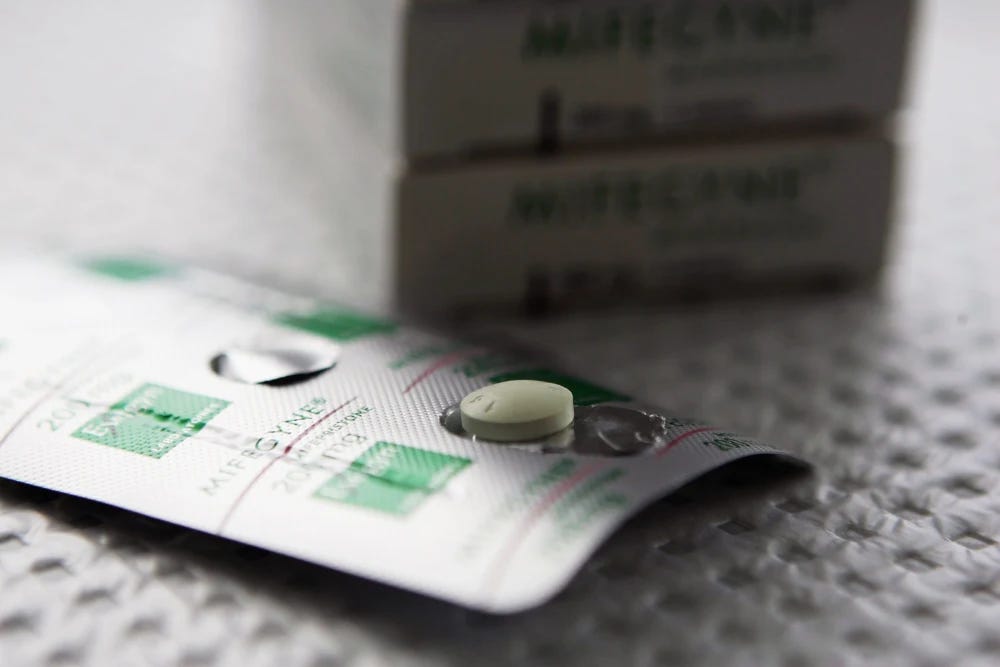New York Doctor Indicted for Prescribing Abortion Pills to Louisiana Amid Strict Abortion Laws
This marks the first criminal case against a doctor accused of prescribing abortion pills across state lines since the U.S. Supreme Court’s 2022 decision overturning Roe v. Wade.
BATON ROUGE, La. — A New York-based doctor has been indicted by a Louisiana grand jury for allegedly prescribing abortion pills to a patient in the state, which enforces one of the strictest abortion bans in the nation.
On Friday, a grand jury in the District Court for the Parish of West Baton Rouge issued criminal charges against Dr. Margaret Carpenter, her company Nightingale Medical, PC, and a third individual. The charges, including felony criminal abortion by means of abortion-inducing drugs, stem from the doctor’s alleged role in providing abortion pills.
This case appears to be the first of its kind since the U.S. Supreme Court's 2022 ruling that overturned Roe v. Wade, which allowed individual states to implement their own abortion laws. While this is the first criminal charge of its nature, Carpenter has also been the subject of a lawsuit in Texas, where she faced similar allegations of sending abortion pills to the state, though that case did not involve criminal charges.
Carpenter did not immediately respond to requests for comment from NBC News.
The indictment follows a recent change in Louisiana law, which became the first state to reclassify mifepristone and misoprostol—the two drugs used in medical abortions—as "controlled dangerous substances." While the drugs remain legal, accessing them now requires additional steps. Under the law, possessing mifepristone or misoprostol without a valid prescription can result in a fine of up to $5,000 and a prison sentence ranging from one to five years. However, the law does provide some protection for pregnant women who acquire the drugs for personal use.
Louisiana’s near-total abortion ban, implemented after Roe v. Wade was overturned, prohibits nearly all abortions, including those performed with pills, and does not include exceptions for cases of rape or incest. Doctors convicted of performing illegal abortions could face up to 15 years in prison, fines of up to $200,000, and the loss of their medical license.
The Abortion Coalition of Telemedicine, of which Dr. Carpenter is a founder, denounced the indictment, calling it an alarming example of state interference in women’s rights. “Since the overturning of Roe v. Wade, we’ve witnessed a disturbing pattern of actions against abortion providers,” the group stated. “This prosecution of a doctor providing safe and effective care should raise concerns for everyone.”
The case may also test the strength of New York's "shield laws," which are designed to protect telehealth providers who prescribe abortion pills to patients in states with abortion bans. New York Governor Kathy Hochul issued a statement defending the state’s laws, emphasizing that they were created to safeguard both providers and patients.
“We always knew the overturning of Roe v. Wade wasn’t the end of the road for anti-abortion politicians,” Gov. Hochul said. “That’s why I worked with the Legislature to pass nation-leading laws to protect providers and patients.”
New York Attorney General Letitia James also condemned the indictment, calling it an unjust effort to "weaponize the law against out-of-state providers." She added, "New York will ensure that medication abortion remains accessible and that our providers can continue delivering critical care."
Medication abortions have become the most common method of abortion in the U.S., accounting for nearly two-thirds of all abortions by 2023. The legal and political battles surrounding abortion pills continue to evolve, with federal and state authorities challenging regulations governing how the drugs can be prescribed and distributed.


